|
|
|
|
So far more than 100 million vaccines against COVID-19 have been administered. Only about 200,000 (0.2%) have been in Africa. This unequal distribution has led to angry questions about how vaccines are being procured, and what can be done to close the gap. But some people are also pointing fingers at developing countries themselves for failing to secure decent prices and access to the drugs. In the case of South Africa, Keymanthri Moodley and Theresa Rossouw argue, the country failed abysmally to take advantage of the fact that it participated in vaccine trials. Sponsors, researchers and research ethics committees had an obligation to negotiate post-trial access, especially in a pandemic.
In a number of wealthy countries, the number of COVID-19 vaccines ordered vastly exceeds what’s needed, while many poorer countries will have to wait – possibly for years – for vaccines to become widely available. Robin Cohen considers how the excess vaccines might be redistributed.
|
Ina Skosana
Health + Medicine Editor (Africa edition)
|

|
|
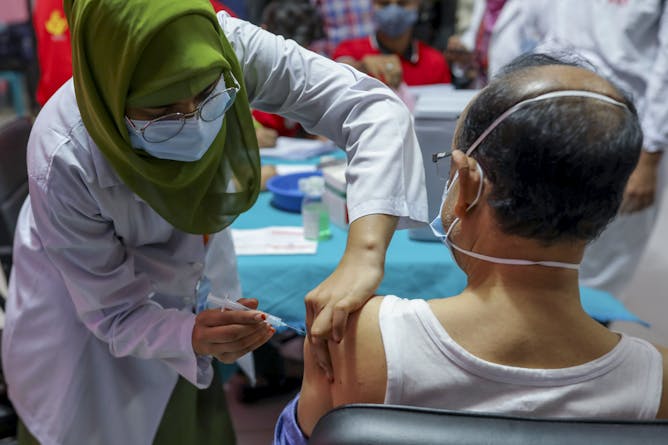
Many countries around the world, like Bangladesh, have started COVID-19 vaccination.
Kazi Salahuddin Razu/NurPhoto via Getty Images
Keymanthri Moodley, Stellenbosch University; Theresa Rossouw, University of Pretoria
Negotiating for the fair treatment of study participants and benefit sharing before a study commences does not constitute an unfair inducement. It is an ethical imperative.
|
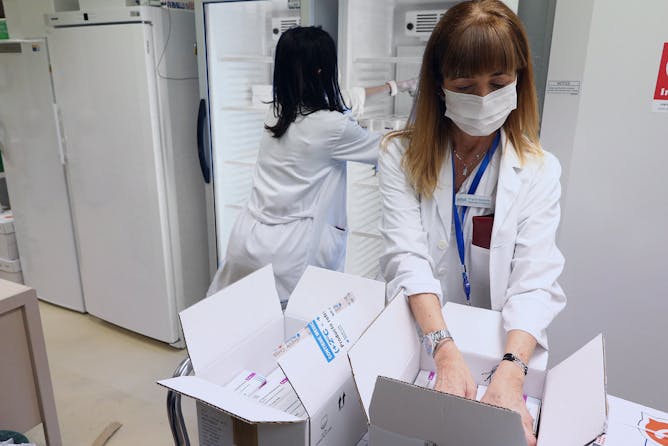
EPA-EFE
Robin Cohen, University of Oxford
Countries may or may not choose to give their share doses to Covax, but regardless, redistribution needs to be driven by need.
|
Environment + Energy
|

Rina Swart, University of the Western Cape; Makoma Bopape, University of Limpopo; Tamryn Frank, University of the Western Cape
A disruption of societal norms created by industry interference is urgently required to create a shift in the food system.
| |
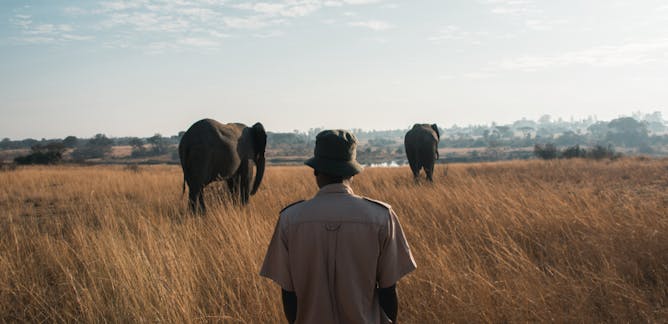
Tafadzwa Mushonga, University of Pretoria
Forest rangers were subjected to occupational violence by their employers. This in turn can provoke a violent reaction to illegal activities, resulting in violent policing tendencies.
|
|
|
From our international editions
|
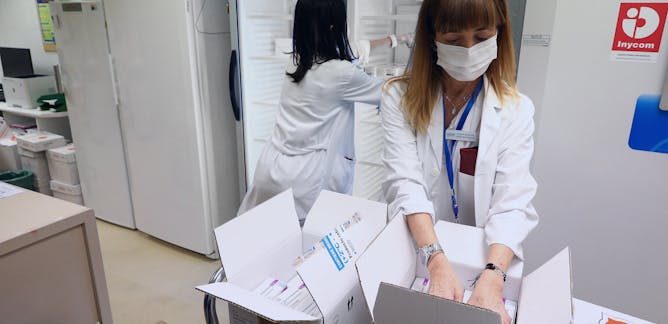
Robin Cohen, University of Oxford
Countries may or may not choose to give their share doses to Covax, but regardless, redistribution needs to be driven by need.
| |

Ciara McGrath, University of Strathclyde
Satellites impact our lives in many different ways, and some of these may surprise you.
|
|
|
En Français
|
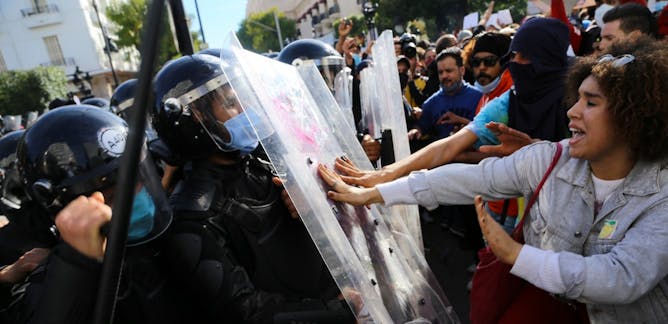
Mohamed Kerrou, Université de Tunis El Manar
La nouvelle vague de contestation qui a éclaté en Tunisie depuis deux mois ressemble à s’y méprendre à la première révolution il y a 10 ans. Rien de tel n’ a encore émergé dans les protestations.
| |

Anne-Geneviève Marcelin, Sorbonne Université
La protection immunitaire diminue au cours du temps chez les professionnels de santé ayant fait une forme modérée de Covid-19.
|
|
|
En Español
|
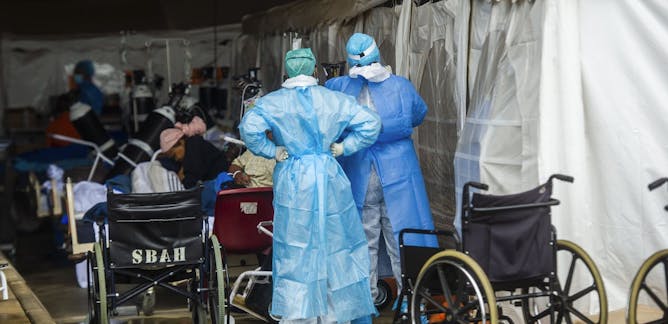
Willem Hanekom, Africa Health Research Institute (AHRI); Tulio de Oliveira, University of KwaZulu-Natal
Los expertos han observado que la 501Y.V2 se ha convertido rápidamente en dominante entre el resto de variantes que circulan entre la población en Sudáfrica.
| |
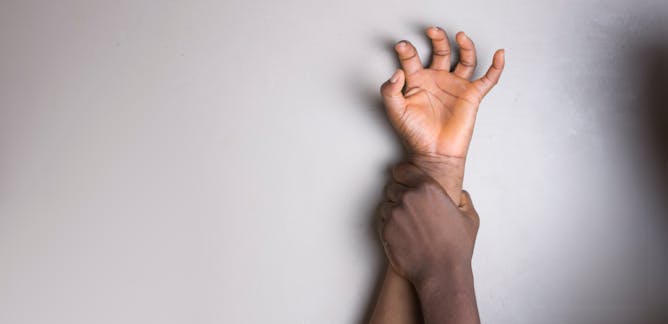
Núria Pedrós Barnils, Universitat Politècnica de Catalunya - BarcelonaTech; Maria Celeste Ruiz, Universitat Politècnica de Catalunya - BarcelonaTech
Las niñas africanas figuran entre las grandes víctimas de la pandemia. Tal y como ha ocurrido en momentos de crisis a lo largo de la historia, están creciendo los casos de violencia de género, las enfermedades de transmisión sexual, los embarazos y los matrimonios infantiles, aumentando así la discriminación de género.
|
|
|
| |
| |
| |
| |
Would you like to republish any of these articles?
|
|
It’s free to republish, here are the guidelines.
Contact us on africa-republish@theconversation.com in case you need assistance.
|
| |
| |
| |
| |
|
|
|
|
|
|
|